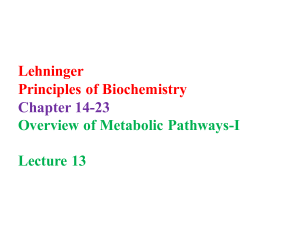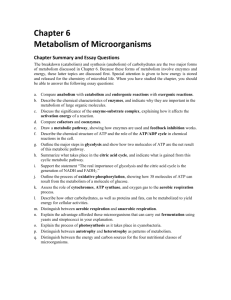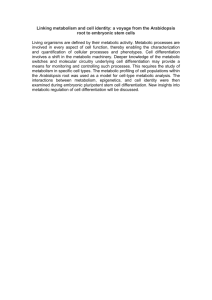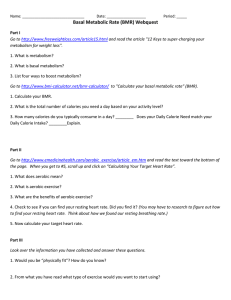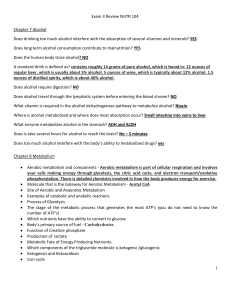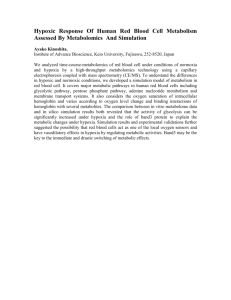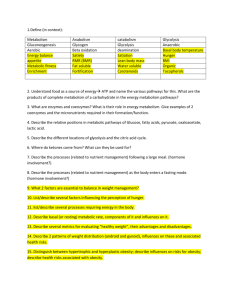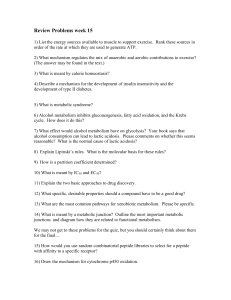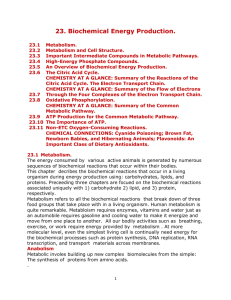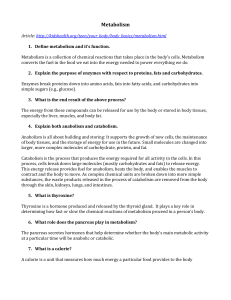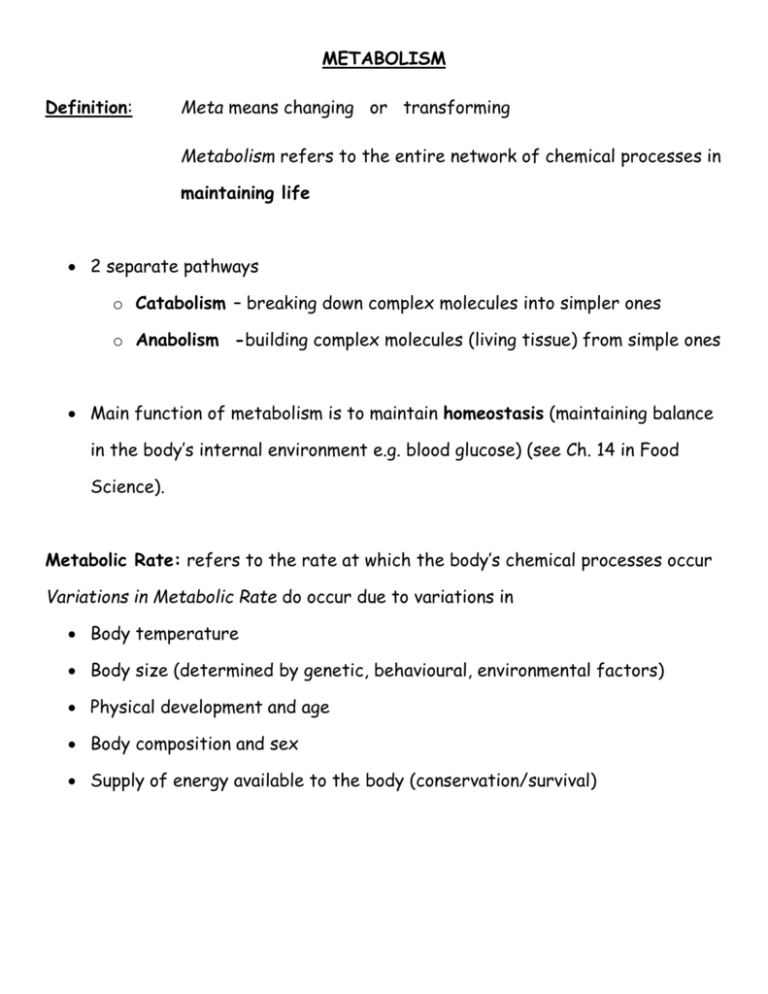
METABOLISM
Definition:
Meta means changing or transforming
Metabolism refers to the entire network of chemical processes in
maintaining life
2 separate pathways
o Catabolism – breaking down complex molecules into simpler ones
o Anabolism -building complex molecules (living tissue) from simple ones
Main function of metabolism is to maintain homeostasis (maintaining balance
in the body’s internal environment e.g. blood glucose) (see Ch. 14 in Food
Science).
Metabolic Rate: refers to the rate at which the body’s chemical processes occur
Variations in Metabolic Rate do occur due to variations in
Body temperature
Body size (determined by genetic, behavioural, environmental factors)
Physical development and age
Body composition and sex
Supply of energy available to the body (conservation/survival)
Metabolism and Weight Management: metabolic rate influences weight
maintenance
Basal metabolism – energy used by body at rest to maintain automatic lifesupporting processes such as breathing, maintaining body temperature,
regulating heartbeat, as well as cellular processes.
o BMR consumes about 2/3 of your body’s energy
Voluntary Activities – consumes the remaining 1/3 of body’s energy
o Includes all physical activity – sedentary, light, moderate, vigorous
Weight-loss Diets – body switches to ‘survival mode’ (SET POINT)
Physical exercise – increases metabolic rate

